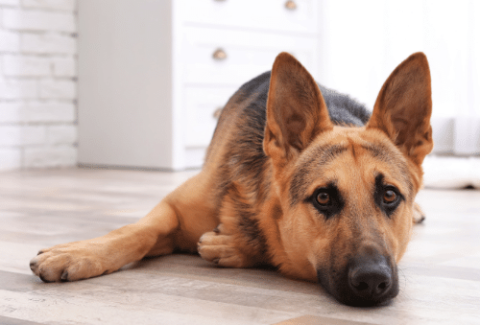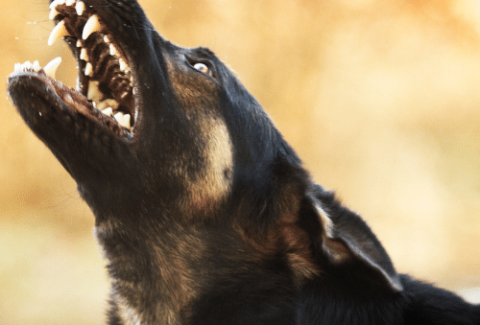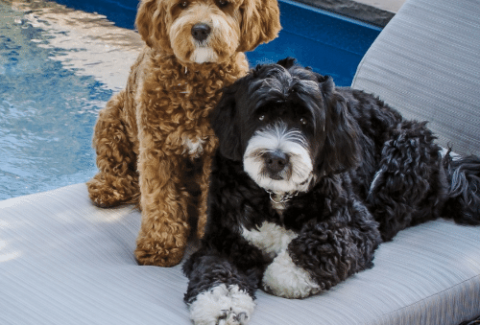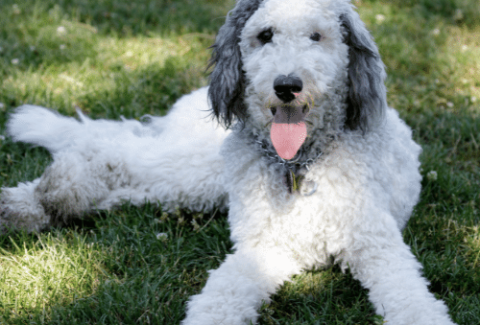How Much Does a Chihuahua cost?
June 1, 2021 2021-08-15 14:59How Much Does a Chihuahua cost?
Chihuahuas are tiny dogs, but that doesn’t necessarily mean that they have a small cost as well. On top of purchasing a puppy, you also have to keep up with the dog’s annual cost, such as food and training.
Usually, these dogs have cost somewhere between $375 to $2,420. Despite their smaller size, these dogs are quite difficult to breed in some cases. Puppies can have problems due to their petite size, so many need veterinary care. Because of their small size and popularity, they are pretty popular among breeders. It isn’t odd to find very inexpensive puppies in some areas where the market is saturated.
However, very carefully bred puppies can cost thousands of dollars. These dogs can cost a lot of money when the proper time and care are put into their breeding, especially if they have undergone extensive health testing.
Table of Contents
How much is a Chihuahua?
Chihuahuas are pretty popular, so it isn’t difficult to find breeders that specialize in them. In general, the average professional breeder sells their puppies for about $800. Specialized puppies, like “teacup” Chihuahuas, usually cost extra. You can typically find puppies in most areas for around $375 – $2,420. The most expensive dogs usually belong to show bloodlines and line up with breed standards the best.
You can also purchase a puppy from an unprofessional breeder. Typically, this is someone who hasn’t bred many litters before and keeps their dogs primarily as pets, except they decided to breed their pet dogs for one reason or another. These dogs are often cheaper because a professional breeder doesn’t back them. The puppies may not have the extensive vet care that professionally-bred puppies often have.
Shelters and adoption centers occasionally have purebred puppies like Chihuahuas. These places are usually relatively inexpensive, as they aren’t for-profit organizations.

Getting a puppy from Craigslist
Craigslist and similar marketplaces are often covered with puppies and dogs of all sorts. Some professional breeders advertise through this means, but most listings are not by professionals. Instead, many are people attempting to get rid of their pets or “oops” litters. They may be just as expensive as high-quality, professional puppies, while others are incredibly cheap.
However, it is hard to determine if the puppies are well cared for when purchasing from marketplaces. Many puppies will not have visited the vet as much as they should have. Some may not have any of their vaccinations. Like worms and parasites, common puppyhood illnesses may affect these puppies, as they have likely not been tested by a vet. These conditions can lead to extensive vet bills.
Many of these puppies were not born from parents that have been health tested. This breed is prone to several genetic conditions. For this reason, parents must be tested to ensure that they are not carriers of the same disease, as then they can pass it on to their puppies. Many of these diseases are not explicitly tied to a single gene, so both parents must be tested to ensure they don’t have any problems.
Overall, these puppies can be generally less healthy than others. They may not have received the proper vet care, and their parents may not have undergone health testing. The puppies may also not have been raised properly, so they may be more fearful of new situations and people. It is difficult to make up lost time by socializing the puppy after you have already adopted it, so you should be prepared for a puppy that potentially needs specialized training and care.
It is also possible that puppies from marketplace sellers have not been fed correctly. This can be a problem for Chihuahuas, as they are prone to low blood sugar, which can cause severe problems in the long term. You won’t be able to tell if your puppy has been affected until later.
Plus, many puppy mills sell their puppies on Craigslist and similar places. These breeding houses often remove the puppies from the mother too early and continuously breed their dogs, which leads to very unhealthy puppies. In general, you should always ask to see the parents before purchasing a puppy. If they don’t let you see the mother and stay, they are likely trying to cover something up.

Getting a puppy from a rescue
Sometimes, rescues and local animal shelters will have purebred puppies like Chihuahuas. However, this is quite rare. Typically, the puppies they receive are from “oops” litters, typically between two dogs of different breeds. For this reason, breeds like Chihuahuas are rare. However, purebred litters do show up at rescues occasionally. You may have more luck at rescues for Chihuahuas specifically.
Most of these dogs don’t come from professional breeders. After all, many of them come from unwanted litters. A professional breeder would not turn over their puppies to rescue. After all, they can find homes for the puppies and don’t need assistance from a rescue. Unless, of course, they run into financial problems or similar issues.
For this reason, most puppies from rescues have unknown backgrounds and often come from parents that didn’t undergo health testing. However, rescues do provide puppies with vaccinations and veterinary care. They will be tested for parasites in most cases and treated before they are put up for adoption.
Rescues will generally let you know the health history of the puppy. They may even spay or neuter the puppy beforehand, though the price is often wrapped into the cost.
Usually, you can expect to pay anywhere from $50 – $500 to adopt from a shelter. This varies from group to group and dog to dog. Some puppies that require more vet care will cost more than others. Usually, the cost is dependent on the care level that the dog needs.

Getting a puppy from a breeder
Professional breeders are experts on their specific breed. They often know how to raise the puppies so that they are adaptable and well-socialized. Furthermore, many professional breeders are registered with the National Chihuahua Club of America or the AKC, requiring them to follow specific requirements for all their puppies.
The biggest perk of purchasing from a breeder is that their dogs often undergo health testing before being bred. This helps ensure that they aren’t carriers of any genetic diseases that may be passed onto puppies. It is also possible for some genetic conditions to remain under the radar and then pop up later after the dog has already had puppies. A battery of health testing decreases the odds of the puppies developing the genetic health problems associated with this breed.
Many breeders also take their dogs and puppies to see the vet multiple times through the pregnancy and after the puppies are born. Typically, a pregnant female will be seen at least once to ensure that the puppies are growing correctly. The puppies will be taken to the vet multiple times for vaccinations and other preventative medicine, like parasite screenings. This helps ensure that your puppy is healthy upon adoption. Many breeders even provide a health guarantee that covers the puppy for the first few months.
While you may spend more for a puppy from a breeder, you often save in the long run. These puppies are healthier than most other options, and they are less likely to develop behavioral problems due to the proper socialization they receive as puppies.

Costs of health tests
There are several health tests that the National Chihuahua Club of America recommends. The first one is a cardiac exam, which involves the dog being listened to with a stethoscope. This occurs on an annual basis from a year of age. This is to check for murmurs, which can indicate an underlying problem. They are graded on a scale from 1-6 based on severity. If a murmur is detected, further testing is often necessary to ensure it isn’t mitral valve disease, which is a genetic condition that affects the heart.
Usually, this test is done at a regular vet visit. If more testing is necessary, it can add a few hundred dollars onto the bill. Sometimes, the murmur ends up being wholly benign or caused by something that isn’t genetic at all. A dog may undergo further testing and then be cleared for breeding.
The second test is an eye exam that covers specific eye conditions. This requires a board-certified veterinary ophthalmologist to perform, as specialized tools are necessary. Usually, an examination costs about $225, but this can depend on the locality and the dog. Some dogs may need an ultrasound if something seems a bit off and must be double-checked, adding $160 to the exam.
Furthermore, the examination is only suitable for 12 months, after which the dog has to be retested. This is a fee breeders will have to pay yearly.
The third and final required test is for patella luxation. This condition occurs when the kneecap slips out of place, leading to pain walking and damaging the dog’s ligaments. It does have a genetic component, so testing is recommended. Usually, this test can be performed at a regular veterinary visit. The vet manipulates the dog’s kneecap and rates the range of movement from one to four.
Puppies can also have a patella luxation test done from 6-8 weeks for primary purposes. However, the actual exam must occur after a year of age. Usually, this test costs very little at the dog’s annual exam. Most vets add an extra $15 – $25 onto the exam fee.

Annual costs of owning a Chihuahua
Small dogs are generally cheaper to own than larger dogs. They don’t eat as much, and general supplies are cheaper due to their smaller size. For instance, a decent dog bed for a smaller dog will cost around $35. However, larger dog beds can cost over $100. Chihuahuas are tiny, so they typically don’t cost very much.
For the first year, you should plan on spending about $350 on initial purchases. This includes everything that your dog will need, such as a bed and food bowls, but that you won’t be rebuying anytime soon (hopefully).
After the first year, the cost drops substantially to about $145. This can change substantially depending on your dog’s health conditions, as well as the amount of training required. Regular boarding and dog walkers will cost substantially more.
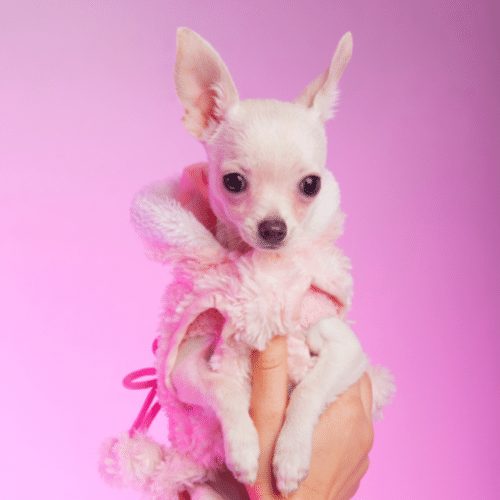
Vet Expenses
Like with most dogs, the first year will be more expensive than the following years. This is because puppies need more vet visits and vaccinations than adult dogs. Generally, a Chihuahua will require anywhere from $300 – $800 in vet bills during the first year. This depends mainly on the vaccinations the puppy already has when you adopt them and if you need to spay or neuter them.
If your puppy is well-taken care of before they are adopted, then you can expect to see the vet only three to four times during the first year. Each visit will cost between $65 to $170, depending on what is taking place at the exam. This covers the exam itself, vaccinations, and fecal examinations. Heartworm and flea prevention will cost an extra $100 – $200 for the year, but it is recommended.
Spaying and neutering the dog will cost anywhere from $50 to $300. Tiny dogs like Chihuahuas are usually less expensive to perform surgery on, as they need very low medication dosages.
After the first year, the vet bills should be significantly less expensive. You will only need one vet visit a year unless your dog gets sick. This visit will usually cost anywhere from $125 to $265, including a routine examination, vaccination boosters, heartworm tests, and possibly some bloodwork. Again, heartworm and flea prevention will cost anywhere from $155 to $220 for the year.
There are several diseases this breed is prone to. Treatment for these diseases can be costly – or it can be extremely inexpensive. It mainly depends on the severity of the disease and whether any complications are present.
Patellar luxation usually costs anywhere from $300 to $2,000, depending on whether surgery is needed or not. The lower end of this range covers basic supportive care, like medication and joint supplements. The higher-end includes surgery.
Hydrocephalus typically runs anywhere from $1,000 to $8,000. Diagnosing it can be difficult and usually costs a few thousand dollars itself. Actual treatment and surgery cost another few thousand dollars.
A collapsing trachea typically only costs about $350 for a diagnosing x-ray and medications. However, surgery may be required in some cases and can cost up to $4,500.
A Chihuahua may develop dental problems even if their teeth are regularly brushed. These dogs have smaller mouths, which makes them more likely to have crowding issues. They will need their teeth cleaned a few times in their lifetime, which can cost anywhere from $400 to $800. Infected teeth can often be removed at this time but usually don’t add much to the cleaning bill. More extensive dental work can cost thousands of dollars.
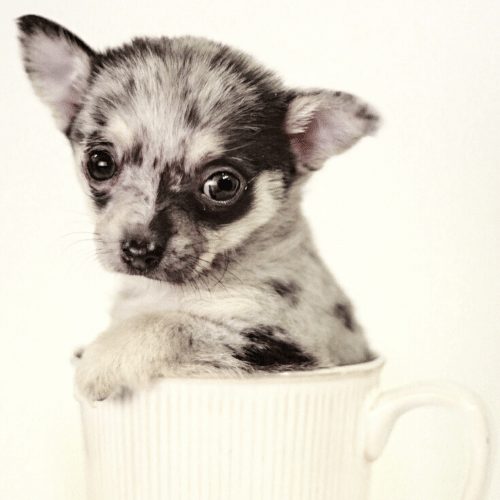
Food and toy costs
Chihuahuas are tiny and don’t need a lot of calories even as a growing puppy, so they don’t need that much food. Their food costs are meager compared to other dogs. For good, high-quality food, you’ll spend around $90 a year. This is for both puppy formulas and adult formulas, as they don’t seem to differ much from these small dogs.
Of course, if you purchase a very cheap formula, you will be paying less. However, this can cause health problems later down the road, which can potentially cost you thousands. The difference between low-quality food and high-quality food for these small dogs is only about $20 a year. It just isn’t worth it.
Chihuahuas are tiny dogs, so they don’t need expensive toys in most cases. You can expect to spend anywhere from $30 to $50 a year on toys. You’ll need to replace them as the old ones become worn and dirty. Plus, it is also possible that you’ll find a cute toy and decide that you must get it for your dog.
Training
Chihuahuas are known for being a bit territorial and protective, which can cause aggression problems. Socialization at a highly early age can be helpful, however. We highly recommend puppy classes, as they provide both training and socialization. If you adopt an older dog, choose group classes. They’re cheaper and provide the socialization your little dog needs.
Typically, you’ll pay about $300 to $500 for a few weeks of group classes. Different trainers and locations have very different fees, so it will largely depend on where you go.
Some Chihuahuas can’t handle group classes at first, especially if they’ve already outgrown the puppy stage. Instead, you may need to start these dogs with one-on-one classes before moving on to group classes. One-on-one sessions are usually more expensive since you are the only person paying the trainer. Expect to pay about $700 to $1,000 for a few private sessions.
Some owners strive to turn their Chihuahuas into service dogs. While they are not the breed best suited for this, actual service dog training takes a lot of time and effort and can cost thousands over the span of 12-18 months.
Grooming
Chihuahuas often do not require much grooming. You may be able to pass on spending any money on their grooming needs by taking care of it at home. If you choose this route, you may be able to spend about $50 in start-up costs, followed by another $10-15 a year. This covers things like brushes, shampoo, and similar grooming equipment that you may need.
However, many people decide to take their Chihuahuas to the groomer due to their small size. These dogs do best when blow-dried after their bath, as they can get too cold very quickly. The groomer can also handle tasks that you may feel uncomfortable with, such as clipping the dog’s nails.
A trip to the groomer for this type of dog usually only costs about $35 to $55, as they don’t require much time at all. You should take your dog to the groomer about 3 to 6 times a year, depending on their shedding rate and the dog’s lifestyle. This puts you at around $100 to $300 a year.

Factors influencing the price
Generally, the most significant factor in a Chihuahua’s price is their bloodline. If a puppy comes from a line of champions, it will likely cost thousands of dollars. Their family is likely well-known in the dog competition world, which means that some people are willing to pay quite a bit for the puppy. Chihuahuas with perfect coloring or unusual patterns (such as the merle pattern) will cost considerably more.
On the other hand, some breeders produce dogs for your average pet owner. These dogs may not have many champions in their blood and may not conform to the standard perfectly. For this reason, they are typically priced far lower and marketed towards those looking for a companion.
Breed certification can drive up the price a little bit, but usually not thousands of dollars. This certification ensures that the dog is purebred. Usually, they are certified by the AKC. Both parents must be certified for this to happen, as the AKC tracks breeds through generations. These Chihuahuas may cost a bit more simply because the breeder has to put in a bit more work to get the certification.
Plus, two AKC Chihuahuas must be used for breeding. These are often show-quality animals, so that the stud fee can be a bit more than for pet-quality Chihuahuas. However, some people find the certification more than worth it.
Some health checks can be made on younger puppies. Some breeders offer these health checks on all their puppies, which usually means that the puppies cost more. While this may drive the cost up, it also ensures that a vet has seen the puppy, tested it for various diseases, and cleared the puppy. This includes diseases that may hide until the puppy is older, like patellar luxation. Many of these cost thousands to treat, so you’ll often save money in the long run.
The quality of the breeder also matters substantially. If the breeder is breeding a pair of Chihuahuas they adopted as pets a few years ago, the puppies probably won’t be that expensive. Professional breeders go through tons of health testing, carefully choose the perfect breeding pair, and aim to improve the breed overall. These puppies will cost more simply because more effort was put in to produce them. Professional breeders are not simply throwing two dogs together. They’re carefully researching bloodlines, health problems, and genetics to choose the perfect dogs.
Vaccinations and other health care will often make the puppy more expensive – though you’re immediately saving money on vet bills. Often, puppies may be spayed and neutered before they are put up for adoption. These dogs often have the surgery roped into their price. They may have a more expensive price tag, but you aren’t paying anything extra considering that you don’t have to pay as many vet bills.
Puppies should start their vaccinations before they are adopted out at eight weeks. If they haven’t, it is a serious red flag. Vaccinations should be included in the puppy price. Those that don’t vaccinate or take their puppies to the vet may charge less for these puppies, but you’ll have to pay extra to get them up-to-date on their vaccinations (and potentially deal with other health problems as well).Chi

Price Considerations
You should thoroughly consider your budget before deciding to adopt a dog. While Chihuahuas are generally inexpensive in the long run, they do require regular expenses. They are also prone to a few health problems that can be extremely expensive. You should have an emergency fund of at least $10,000 to cover any sudden vet costs.
Preferably, you should overbudget for your new pooch—plan on spending the maximum amount we have listed. If you spend less than that (which you probably will), then you’ll be pleasantly surprised. That is far better than needing to reconsider your budget when you’re halfway through purchasing supplies.
Don’t be afraid to spend more on a puppy upfront with health testing and the proper vet care. Often, this will save you more money in the future. When you take a puppy to the vet that hasn’t yet been checked out, you never know what you’re going to get.
The Bottom Line
To adopt a Chihuahua, you can expect to pay between $375 to $2,420. Puppies with champions in their bloodline will typically cost less. The first year, you’ll probably spend at least $350 on non-consumable pet supplies, like dog beds and food dishes. However, after that, the annual cost will drop down to about $135.
Health conditions and emergencies can drive this price up substantially, though. An emergency fund is essential to ensuring the long-term health of your canine.
Steffi Trott
Related Posts
Are Labradoodles High-Maintenance?
At what age do Labradoodles calm down?
Are Pomeranians Good for First-Time Dog Owners?
Are German Shepherds Hypoallergenic?
Are German Shepherds Smart?
Are German Shepherds Vocal?
Are German Shepherds Good With Kids?
Do Bernedoodles like Water?
Do Bernedoodles Like Cats?
How Long Can Australian Shepherds Be Left Alone?
Check out our effective and affordable online dog training courses!
-
Sale Product on sale
 Tackling Reactivity Bundle
Tackling Reactivity Bundle
MONEY BACK GUARANTEE$564.00$49.00 -
Sale Product on sale
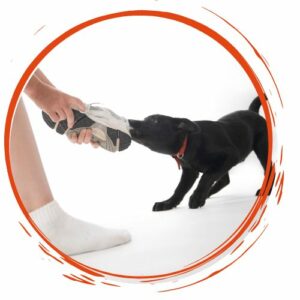 Perfect Obedience Bundle
Perfect Obedience Bundle
MONEY BACK GUARANTEE$349.00$49.00 -
Sale Product on sale
 Ultimate Puppy Bundle
Ultimate Puppy Bundle
MONEY BACK GUARANTEE$416.00$49.00 -
Sale Product on sale
 The Perfect Focus Bundle
The Perfect Focus Bundle
MONEY BACK GUARANTEE$445.00$169.00 -
Sale Product on sale
 Ultimate Masterclass Bundle
Ultimate Masterclass Bundle
MONEY BACK GUARANTEE$2,213.00$499.00




